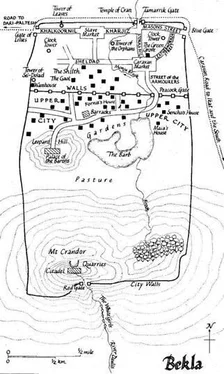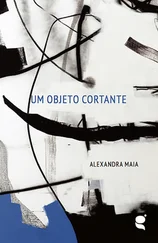Richard Adams - Maia
Здесь есть возможность читать онлайн «Richard Adams - Maia» весь текст электронной книги совершенно бесплатно (целиком полную версию без сокращений). В некоторых случаях можно слушать аудио, скачать через торрент в формате fb2 и присутствует краткое содержание. Жанр: romance_sf, на английском языке. Описание произведения, (предисловие) а так же отзывы посетителей доступны на портале библиотеки ЛибКат.
- Название:Maia
- Автор:
- Жанр:
- Год:неизвестен
- ISBN:нет данных
- Рейтинг книги:4 / 5. Голосов: 1
-
Избранное:Добавить в избранное
- Отзывы:
-
Ваша оценка:
- 80
- 1
- 2
- 3
- 4
- 5
Maia: краткое содержание, описание и аннотация
Предлагаем к чтению аннотацию, описание, краткое содержание или предисловие (зависит от того, что написал сам автор книги «Maia»). Если вы не нашли необходимую информацию о книге — напишите в комментариях, мы постараемся отыскать её.
Maia — читать онлайн бесплатно полную книгу (весь текст) целиком
Ниже представлен текст книги, разбитый по страницам. Система сохранения места последней прочитанной страницы, позволяет с удобством читать онлайн бесплатно книгу «Maia», без необходимости каждый раз заново искать на чём Вы остановились. Поставьте закладку, и сможете в любой момент перейти на страницу, на которой закончили чтение.
Интервал:
Закладка:
end. All about her-so that she had to raise her voice even to talk to Occula beside her-rang the multifoliate clamor of the city; the crying of wares, the shouting of children at play, the gabbling of bargainers and quarrellers, the tappings and hammerings peculiar to tinkers, carpenters, smiths, cobblers, masons, wheelwrights. Once, as the jek-zha went by, she caught for a few moments the voice of someone singing a Tonildan ballad she recognized. At a crossing, a scarlet-liveried slave strode across their front, staff in hand, crying "Make way! Make way!", followed by a curtained litter adorned, behind and before, with the cognizance of a crowned leopard. Across the roof-tops sounded from the upper city the wavering, gong-like notes of copper bells.
Most of all, Maia was amazed by the size and grandeur of the buildings. Bekla, growing up upon a natural site for a city, with a virtually impregnable hilltop citadel, watered by a lake and standing at the convergence of five roads traversing a wide plain, had been built almost entirely from the stone quarries of Mount Crandor. Time out of mind it had been renowned for its builders, masons and stone-carvers. Almost every house, from the Palace of the Barons to the lodgings for the itinerant herdsmen, was of stone. The market-colonnades, the temples, the graceful towers and other public buildings were of a beauty and magnificence unparalleled in any other city throughout the empire. The very fact that the old ceremonial name, Bekla-lo-Senguel-Cerith ("The Garden of Dancing Stone"), was still commonly used in poems, songs and ballads testified to the universal pride and veneration felt for the capital.
All this Maia, like everyone else, had heard from infancy. But there is a world of difference between hearing tell and seeing for oneself. Staring up at rows of decorated corbels supporting overhanging upper stories, at innumerable foliate chamfers and casement moldings, at delicate interpenetrations of stone executed with almost incredible craftsmanship and skill, the spontaneous Maia, hitherto entirely ignorant of such things, was entranced by what seemed to her little short of a miracle-of hundreds of miracles. How could stone be made to float like lilies, curl like waves, drift like clouds? Who had raised these stones, piling them up to stand firm, one upon another, far above the heads of mortals walking safe and unconcerned below; and then, not content with that, carved them
into flowers and foliage, snarling beasts, armed men, naked girls?
Why, 'tis past all believing! she thought. If ever I see Tharrin again, reckon I'll be the one as does the talking. Occula might be right after all-if only things turn out lucky, I could find myself better off than ever I was back home. She sighed. All the same, I'd like to see the old lake again, and have a swim under the falls, that I would.
Their progress was slow, for as the afternoon cooled the streets grew ever more busy. Several times their jekzha was forced to a halt and Zuno, ahead, was obliged to stop and wait until they could catch him up. Their journey, though only a little over three-quarters of a mile, lasted a full half-hour.
Amid all the excitement and activity, Occula had entirely recovered her spirits, and was highly tickled by the prospect of arriving at their destination on wheels rather than on foot. Furthermore, it was flattering to have beside her the ingenuous Maia, full of wonder and curiosity and hanging upon her every word. For a time she was content simply to rest her feet on the rail in front of them and reply to Maia's questions. Soon, however, her natural energy and unsleeping sense of self-interest began to take over.
"Come on, banzi," she said, putting an arm round Maia's shoulders and impelling her forward on to the edge of the seat. "Bugger the bells, and the carvin' too! They woan' do anythin' for you! You've got to show off a bit, my lass! This is no time to be starin' round at other people and forgettin' all about yourself. They're the ones who've got to be doin' the starin'. Our job's to put on some style!"
"Whatever for?" asked Maia. "We're going to this Lal-loc man, aren't we?"
"Yes, but you never know who may happen to see you and take a fancy: that's the way a good shearna works- never misses casual opportunities. Lean forward, pull your dress down a bit. Get those deldas out-no, right down to the strawberries, come on-"
"Here, steady on!" Maia turned scarlet as the blac' girl pulled down her bodice.
"That Ortelgan stiff was right-blushin' does suit you," replied Occula. "I doan' know about the men, banzi, but I could eat you up."
"Hey, girls, any room for a little one?" called a young
fellow in a carter's smock and leggings, cracking his whip to attract their attention.
"I like big ones," answered Occula, holding her hands up about a foot apart.
"And I like willing ones," said the carter. "I like that black skin of yours, too. Where d'you come from, lass?"
"The finest country in the world," replied Occula.
"Then what are you doing here?"
"Well, where I come from, you see, the girls give so much pleasure that the men have all died of it, so I've had to look elsewhere."
"Fancy that, now!" said the carter. "And who's your pretty friend?"
"One you can' afford," answered Occula.
"By Lespa, and I reckon that's true enough for now!" called the young fellow after them, as the jekzha began to move on. "Might see you again one day, though. Where you going?"
"Time you've made your fortune," replied Occula, "we'll be so famous you woan' have any trouble findin' us!"
At the western end of Masons Street the jekzha turned left into the foot of Storks Hill, but the girls had scarcely time to glimpse, behind them, the breath-taking Tamarrik Gate before they turned again, this time to the right, down the broad thoroughfare of the Kharjiz and so oh into the Slave Market.
Since this was not a market day the big square was not crowded. A gang of municipal slaves was at work clearing and sweeping, while two masons were repairing one of the raised sale platforms on the north side. Here, too, all was built of stone and beautified with flowers-beds of golden lilies and scarlet askinnias dividing the various rostra and barracoons one from another. Each roofed and pillared rostrum was decorated with a carved relief, depicting scenes appropriate to the kind of slaves sold on it. This was recent work, commissioned by Queen Forms herself-a great promoter of the slave trade.
"Oh, look at the men fighting!" cried Maia, pointing at a battle scene which ran down one entire side of a rostrum forty feet long.
"That must be where they sell the soldiers," replied Occula.
"They sell soldiers?" Maia was puzzled.
"Well, some kinds, yes," answered the black girl. "Pris-
oners taken in war-you know, Katrians and Terries-fellows from Terekenalt-if they're not badly wounded or disabled, and if no one ransoms them, they're often sold. They wouldn' be any good for the regular army, you see-not former enemy wouldn'-but provincial barons buy them for their household companies, and often people from other countries buy them, too. The further off a man comes from, the more useful he is to a baron's local bunch of bastards, you see."
"Oh, and that platform there, look! That must be for the roadmakers, I suppose. What wonderful pictures! I've never seen anything like them!"
In fact, of course, Maia had never seen any graphic or sculptural art whatever, except for crude peasant work at Meerzat and round about: and although, often, that was not lacking in a certain power and beauty, it had not prepared her for the art of such great Beklan craftsmen as Fleitil, Sandruhlet and those others whose names, still known today, can only make us regret that virtually all their work is lost to us for ever. Gazing at Sandruhlet's frieze-of which only a fragment survives-of the pioneer gang driving the Gelt road into the foothills, all newly painted in brilliant, stylized colors intensifying its half-barbaric impact, Maia felt herself actually tingling at the sight of the straining, muscular young men, the rain glistening on their half-naked bodies as they heaved on the sledge-ropes.
Читать дальшеИнтервал:
Закладка:
Похожие книги на «Maia»
Представляем Вашему вниманию похожие книги на «Maia» списком для выбора. Мы отобрали схожую по названию и смыслу литературу в надежде предоставить читателям больше вариантов отыскать новые, интересные, ещё непрочитанные произведения.
Обсуждение, отзывы о книге «Maia» и просто собственные мнения читателей. Оставьте ваши комментарии, напишите, что Вы думаете о произведении, его смысле или главных героях. Укажите что конкретно понравилось, а что нет, и почему Вы так считаете.












